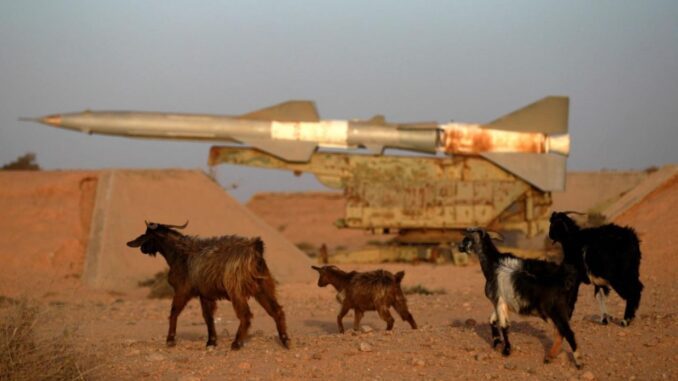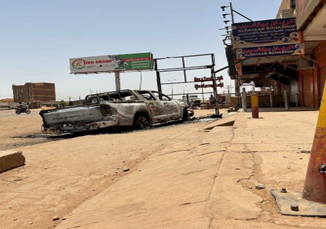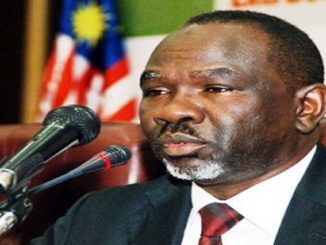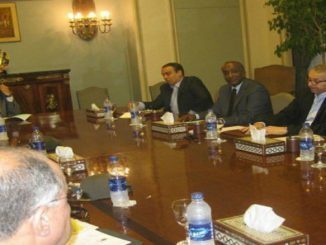
Sources in southern Libya say the Libyan commander is helping Sudan’s Rapid Support Forces (RSF), a paramilitary group and that supply lines have changed
International monitoring has pushed Khalifa Haftar into changing the routes his forces use to supply Sudan’s Rapid Support Forces (RSF), local sources close to the eastern Libyan commander said, according to MEE.
Politicians, analysts and intelligence sources from southern Libya confirmed to MEE that Haftar is involved in the supply of arms and fuel to the paramilitary group, which has been at war with the Sudanese army since 15 April.
While pictures of shipments of weapons being transported from military bases in eastern Libya were published early in the conflict, the sources also revealed the names of airbases they said are now being used as launching points for cargo.
Saad Bou Shradah, a member of Libya’s state council from the country’s south, said, in an interview with MEE, that Haftar’s Libyan Arab Armed Forces (LAAF) is flying military supplies from its territory to the Central African Republic, from where they are driven by car across the border into the Sudanese interior.
Sources inside Haftar’s operation, who spoke anonymously because they are not authorised to talk to the media, confirmed this. Opposition sources in CAR have previously told MEE that the government there is working with the Wagner Group to supply the RSF.
The bases are protected by forces from Wagner, the Russian military group. There are at least 10 air and ground bases in eastern Libya being used for this purpose, according to military sources inside Haftar’s operation.
These include the airbases al-Jufra, Tamanhent, Brak al-Shati, al-Khadim, Gamal Abdel Nasser, al-Abraq, Benina, al-Qardabiya, Maaten al-Sarra and finally al-Wigh, located in the southernmost part of the Sahara border region along the Libya-Chad border.
Major General Khaled al-Mahjoub, director of the moral guidance department in Haftar’s LAAF, told MEE that the army was not supporting the RSF in Sudan. He said that the LAAF distanced itself from external conflicts and that its objective was to protect the unity and territorial integrity of Libya.
The question of Haftar’s connection to the RSF, which is led by Mohamed Hamdan Dagalo, has been hotly debated since the war between the paramilitary group and the Sudanese Armed Forces (SAF) began on 15 April.
Both generals enjoy a close relationship with key figures in the United Arab Emirates and Russia. And both have a history of helping one another.
Dagalo, who is commonly known as Hemeti, sent hundreds of fighters to support Haftar’s assault on Tripoli, Libya’s capital, in 2019. At the time, the Sudanese army denied the involvement, despite evidence contained in a confidential report produced by monitors.
The presence of the fighters made little difference, with Haftar’s men suffering a major defeat.
Haftar and the RSF are also implicated in a network of illicit trade that spans the border regions of Libya, Chad and Sudan.
Much of this cooperation is connected to tribal affiliations. Hemeti’s family hails from Chad originally, and he is part of the Mahariya tribe of the Rizeigat community, which has longstanding roots in the triangle border region of Sudan, Chad and southern Libya.
“The Haftar family cares about the survival of illicit trade networks that exist between Sudan and eastern Libya,” Jalel Harchaoui, a political analyst and an associate fellow at the Royal United Services Institute, told MEE in April.
“The Haftar camp is now sending aid to the RSF. This sudden benevolence suggests that the Emiratis or the Russians or someone from outside has decided to use their leverage with Haftar for the benefit of Hemeti.”
Fuel, captagon, hashish, gold and stolen cars are among the illegal goods smuggled in and out of Sudan and Libya.
Haftar-controlled territory in Libya also lies along the migration route from Sudan, Eritrea and Ethiopia to the Mediterranean. People trafficking has, since 2014, become a lucrative trade in Libya.
Moussa Tehoussay, a member of Libya’s Change Party and a researcher in African affairs, said Haftar might not benefit significantly from getting involved in Sudan’s war. Tehoussay told MEE that Haftar’s support was related to his allies outside of Libya, namely the UAE and Russia.
These two, the politician and researcher said, had provided most of the support funnelled to the RSF. This mostly goes through the Wagner Group, which has transported advanced weaponry and military equipment, such as SAM-7 missiles and anti-aircraft systems, via air cargo from the town of Kufra in southern Libya.
That supply route is currently on hold because of international monitoring – including from the United States Africa Command (Africom) – and because of its vulnerability to attack from Sudanese air force planes. Nonetheless, Tehoussay said, support continues to be provided from Libyan territories.
According to military analyst Adel Abdel Kafi, the supply of fuel to the RSF is facilitated by the Sabil al-Salam units and 128th battalions in Haftar’s army, which are under the command of Hassan Maatuq al-Zadma.
Zadma’s battalion is responsible for the southeastern region of Libya and the commander has strong, longstanding relationships with Sudanese and Chadian mercenaries and militias dating back to the days of Muammar Gaddafi.
The RSF’s power base is in Darfur, in the west of Sudan. This vast region shares a border with Libya, Chad and the Central African Republic, and there are Sudanese groups operating in the border regions that are helping supply the RSF because of tribal connections and comradeship from previous periods of fighting.
This includes the first decade of the 21st century, when the notorious Janjaweed militias deployed by former Sudanese president Omar al-Bashir brutally crushed rebellions among black African groups in Darfur.
Hemeti was a Janjaweed commander and elements of the militias morphed into the RSF, which was brought under the auspices of the Sudanese intelligence services in 2013.
The support being provided by groups in the border regions of Sudan and Libya includes fuel, ammunition and some medical and logistical equipment, but not in quantities that would significantly impact the course of battles or bring about a major shift in the war.



